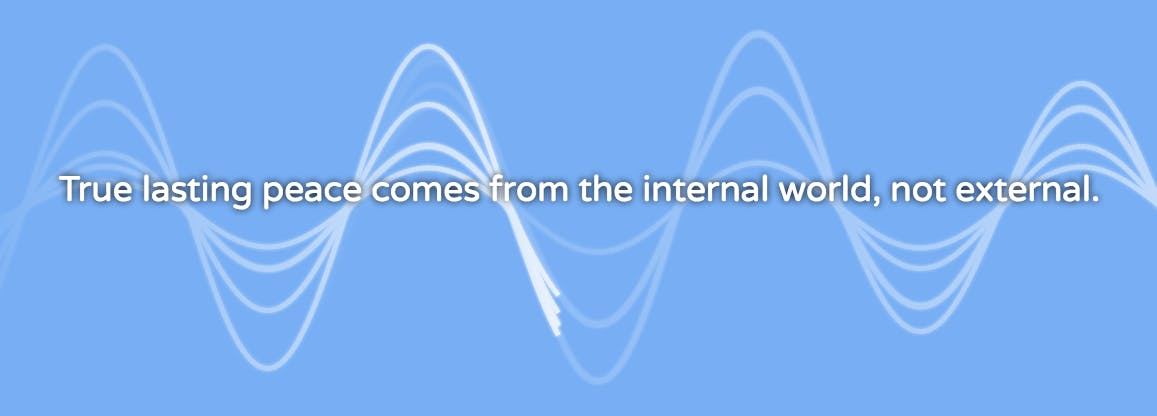Working seems especially hard in the summer. As I write this, it’s 73 degrees outside without a single cloud. I catch myself staring out the window for minutes at a time, thinking about reading and drinking wine on my balcony, or wishing I could head to the beach, or wishing I could do just about anything other than the writing I’m supposed to be doing.
I don’t exactly need your pity, but for these months, every cell in my body is screaming for the intense beams of natural warmth it rarely gets all year.
But even without the summer, focusing on work is getting harder. The internet provides a great distraction, not to mention all the many things there are to do in a given day—honing in on just one task seems impossible.
But what if there was a way to snap your brain into focus? No, not by taking Adderall. By listening to music.
Brain.fm has “created AI capable of composing music specifically made for the brain to improve focus, relaxation, or sleep.” On its site, you can choose which of these things you want to accomplish, and for how long. From there, various styles of ambient music begin to play, supposedly matched to your brainwaves to stimulate productivity or relaxation.
Brain.fm says its music works by the power of entrainment and the dynamic attending theory. The former is the phenomenon of your brain’s rhythms syncing up with music, and the latter says that “the brain is auditorily stimulated in a specific way: time dilates and the conscious energy that the human brain automatically uses on chronological awareness can be channelled back into the task at hand.”
Brain.fm provides a bibliography of studies to back up its claims, like ones that say processing speed improves while listening to upbeat music, or that music improves verbal memory encoding. “What Brain.fm is doing is creating a rhythmic stimuli that resembles frequencies already in your brain,” it says in a press release. “It plays that stimuli long and consistently enough to actually register a solid and predictable response on an EEG,” a test that detects abnormalities in brainwave patterns.
In fact, the science in Brain.fm is so powerful, use is preceded by a warning for people who suffer from seizures. “Any kind of rhythmic stimulus—like flashing lights—can be dangerous for people who are prone to seizures, although audio is much, much less dangerous in this respect,” founders Junaid Kalmadi and Adam Hewett told the Daily Dot over email.
But the warning does highlight that Brain.fm’s music is not one-size-fits-all. Our brains are different, and what may stimulate one may distract another. “This has been a major problem and obstacle in the research of auditory brainwave stimulation for decades,” say Kalmadi and Hewett. “We spent many years meticulously creating protocols that cycle through different patterns.”
To tweak its tunes, Brain.fm starts you off with music that tends to work for most people, then relies on user ratings to see what works. That is, if you can even tell it’s working.
The music comes with different soundscapes, like “thunderstorm focus” or “underwater relax,” that supposedly use the sounds of those environments to help you achieve your goals. For my first foray into Brain.fm, I chose the general “intense focus.”
I set up shop in the busy common room of my workspace, where people are eating lunch, taking calls, and playing ping pong (ugh, millennials). My goals were to write and write well, to not get distracted by open tabs, the people around me, or the promise of a warm day outside. I faced the window to make this as difficult as possible, and then turned on the half-hour “focus” music, meant for intense reading, studying, or creative output.
Within five minutes, the outside world felt fuzzy and distant, which surprised me, given that I normally can’t listen to music and write at the same time. The buzzing, amelodic sounds drowned out the possibility of the outdoors, of other people, of anything but me and my laptop. I allowed myself to be optimistic, believing this was it, that I could finally get down to the work of writing without my mind wandering to a hundred different other things.
“But while I wasn’t distracted by the things around me, I remained distracted by the things in front of me. I got sucked into checking Twitter, and remembered I needed a new bathing suit, and 10 minutes later, I realized I hadn’t been writing at all.”
It sort of happened that way. What I envisioned was the music would give me that rush of energy and clarity that comes when you’re writing at your best, where your fingers can barely keep up with your thoughts and, when you finally come up for air, there are hundreds of clean, coherent words on the page. But while I wasn’t distracted by the things around me, I remained distracted by the things in front of me. I got sucked into checking Twitter, and remembered I needed a new bathing suit, then started shopping for one, and 10 minutes later, I realized I hadn’t been writing at all. I was really focused on shopping for that bathing suit, though.
A subscription to Brain.fm allows you to track your progress, and it seems like a lot of people are reporting better sleep and better productivity after a few weeks of using Brain.fm. Over a few days, I try out the different “focus” soundscapes, from forest noises to “chimes & bowls.” I certainly forget about the outside world, but my inside one is still pulled in different directions.
The appeal of something like Brain.fm is that it will save us from ourselves. We want not something that just helps us focus on our work, but a trick that gets us there in an instant. Brain.fm will not make you better at what you do, or immune to those moments where you’re stuck in your work and don’t know what to do next, or make the weather outside less enticing. It may just make it easier to ignore the ping pong.



